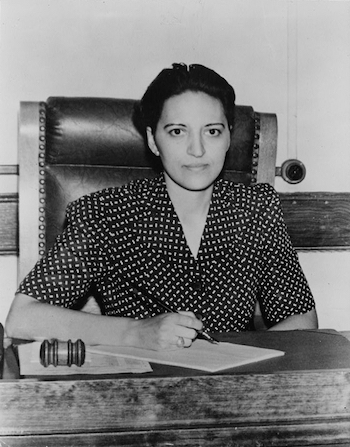Jane Bolin-The First Black Female Judge
Share
Explore Our Galleries
Breaking News!
Today's news and culture by Black and other reporters in the Black and mainstream media.
Ways to Support ABHM?

On this date in 1908, Jane M. Bolin was born. She was a lawyer who became the first Black female judge.
From Poughkeepsie, NY, she was one of four children of Gaius Bolin, the first African American graduate of Williams College who practiced law in Poughkeepsie. Bolin attended Wellesley College, graduating with honors in 1928. In 1931, she was the first Black woman to attend Yale Law School. After marriage to Ralph E. Mizelle and a successful law career, she ran unsuccessfully as the Republican candidate for New York’s seventeenth district state assembly seat. In 1937, Bolin was appointed assistant corporate counsel in New York City’s law department. Here she made inroads, with private employers, to hire people for qualifications, rather than discriminate against African Americans.
Read more about Jane Bolin here.
In 2022, the first Black woman became a Supreme Court justice.









Comments Are Welcome
Note: We moderate submissions in order to create a space for meaningful dialogue, a space where museum visitors – adults and youth –– can exchange informed, thoughtful, and relevant comments that add value to our exhibits.
Racial slurs, personal attacks, obscenity, profanity, and SHOUTING do not meet the above standard. Such comments are posted in the exhibit Hateful Speech. Commercial promotions, impersonations, and incoherent comments likewise fail to meet our goals, so will not be posted. Submissions longer than 120 words will be shortened.
See our full Comments Policy here.